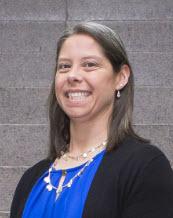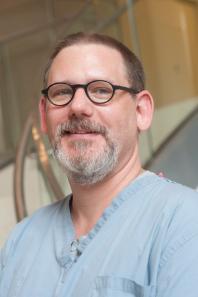PGY2 Psychiatric Pharmacy Residency
Purpose Statement
PGY2 pharmacy residency programs build on Doctor of Pharmacy (Pharm.D.) education and PGY1 pharmacy residency programs to contribute to the development of clinical pharmacists in specialized areas of practice. PGY2 residencies provide residents with opportunities to function independently as practitioners by conceptualizing and integrating accumulated experience and knowledge and incorporating both into the provision of patient care or other advanced practice settings. Residents who successfully complete an accredited PGY2 pharmacy residency are prepared for advanced patient care, academic, or other specialized positions, along with board certification, if available.
Qualifications
Applicants must be Doctor of Pharmacy graduates from an ACPE-accredited school or college of pharmacy; have completed an accredited PGY1 Pharmacy Practice Residency; be licensed or eligible for pharmacist licensure in Virginia; and possess requisite patient care training or experience. The successful applicant must possess exceptional knowledge, clinical problem-solving, communication skills, and leadership qualities.
Residency Goals
- To develop expert skills and competencies in patient-centered care of the behavioral health population.
- To develop teaching, assessment, and communication skills necessary to provide education to pharmacy trainees, health care professionals, and patients.
- To develop proficiency in institutional policies, systems, and psychiatric pharmacy practice.
- To provide experiences in clinical research and quality improvement in psychiatric pharmacy practice.
- To enhance organizational and leadership skills that assist the resident in developing patient-oriented pharmacy services in the behavioral health population.
Program Training and Structure
The program is comprised of six required and three elective acute care learning experiences and three required longitudinal ambulatory learning experiences, along with one longitudinal elective learning experience. Acute care learning experiences are generally five weeks in duration, while ambulatory care learning experiences are longitudinal (one half-day per week for 10 weeks). Staffing/operational rotations and additional longitudinal projects include quality improvement initiatives, medication use evaluation, institutional committee service, didactic teaching, clinical precepting, and psychiatric emergency responses.
Required Rotations (minimum 6/year, duration: 5 weeks)
- Medical Psychiatry
- Schizophrenia
- Child and Adolescent Psychiatry
- Geriatric Psychiatry
- Neurology
- Experiential (APPE) Teaching
*Staffing/Operations (longitudinal, approximately every third weekend)
*Ambulatory Clinics (longitudinal, one-half day every week, see below)
*Institutional Committee (longitudinal, approximately one meeting/month)
Elective Learning Experiences (3)
- Advanced Acute Care Psychiatry/Mood Disorders
- Ambulatory Care Psychiatry
- Clinical Toxicology
- Emergency Psychiatry
- Internal Medicine
- Neuroscience ICU
- Psychiatry Consult & Liaison Service
Ambulatory Clinic Learning Experiences (longitudinal, typically 8-10 weeks, one-half day per week)
- Required:
- Adult Psychiatry
- Child and Adolescent Psychiatry
- Substance Abuse
- Elective:
- Center for Advanced Health Management
- Clozapine Clinic
- Esketamine Clinic
- Multiple Sclerosis Clinic
Teaching
The PGY2 Psychiatric Pharmacy Resident is given an academic faculty appointment as a Clinical Instructor in the VCU School of Pharmacy and has opportunities to provide didactic instruction (e.g., lectures, team-based learning, and skills lab sessions, case conferences) and experiential training (e.g., APPEs) for Doctor of Pharmacy students. Residents may participate in an elective teaching and learning certificate program.
Research and Quality Improvement
Each resident is responsible for initiating and successfully completing a research or quality improvement project, with presentations at an internal residency research symposium and a national meeting. Residents are encouraged to submit their projects for publication. An advisor and additional team members guide the resident through the process. Potential psychiatric research projects are presented to the resident at the start of the residency program.
Program Leadership
 |
Program Director Sandra Mitchell, PharmD, BCPP, FAAPP Clinical Specialist, Psychiatry Clinical Assistant Professor, VCU School of Pharmacy Clinical Associate Professor, MCV/VCU School of Medicine Clinical Instructor, VCU School of Nursing PharmD, Wilkes University Nesbitt School of Pharmacy PGY1 Residency in Pharmacy Practice, HCA Virginia, Chippenham/Johnston-Willis Hospitals PGY2 Residency in Psychiatry at VCU Health System |
 |
Coordinator, Pharmacy Residency Programs |
 |
Director, Department of Pharmacy Services |
Accreditation
This program is accredited by the American Society of Health-System Pharmacists and participates in the ASHP/NMS PGY2 Matching Program and PhORCAS. For details, visit the ASHP PhORCAS website.
Recruitment
Visit our Application and Recruitment page for more information on our virtual sessions and ASHP showcase and Personal Placement Service participation.
Number of Positions
1
Salary and Benefits
The salary for PGY2 pharmacy residents at VCU Health System is $60,000.
Duration of Appointment
The pharmacy resident's contract at VCU Health System begins on July 1 of the program year and concludes on June 30 of the subsequent year.
Leave and Benefits
Two weeks (10 days) of paid vacation or personal leave are granted. Additionally, 9 days of paid holiday leave and 5 days of paid sick leave are provided. Residents also receive 2 days of family/self-care leave and 10 days for educational or professional leave.
Health Benefits
The VCU Health System provides a health insurance policy, including outpatient physician visits, lab tests, and optional dental, vision, and family coverage.
Liability Insurance
VCU Health System provides professional liability (malpractice) insurance for each pharmacy resident. The policy covers professional service within the institution.
Moonlighting
Residents may pursue additional paid staffing within VCU Health System upon program director approval, not exceeding 16 hours weekly.
Office Space and Resources
Office space and remote access to patient and drug information are provided for residents.
Health and Recreation Facilities
Residents have access to VCU recreational facilities at a reduced membership fee.
Parking
Parking and health-system shuttles are available on the VCU Medical Center campus at no cost.